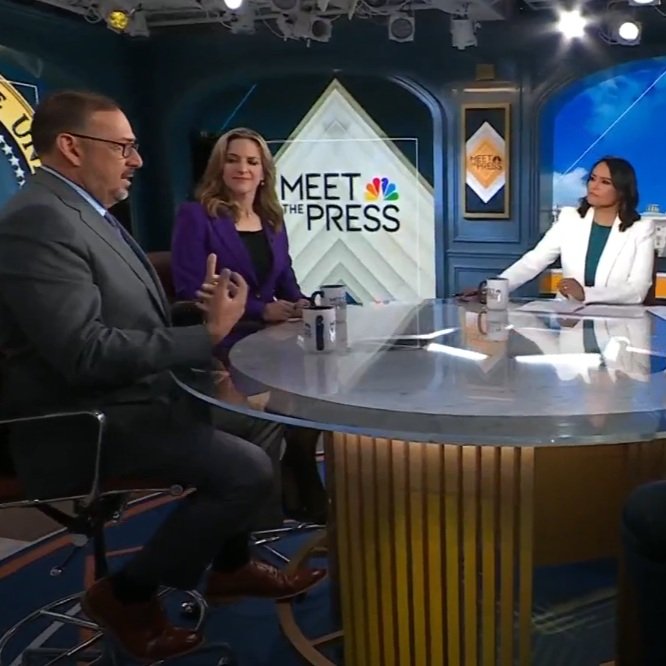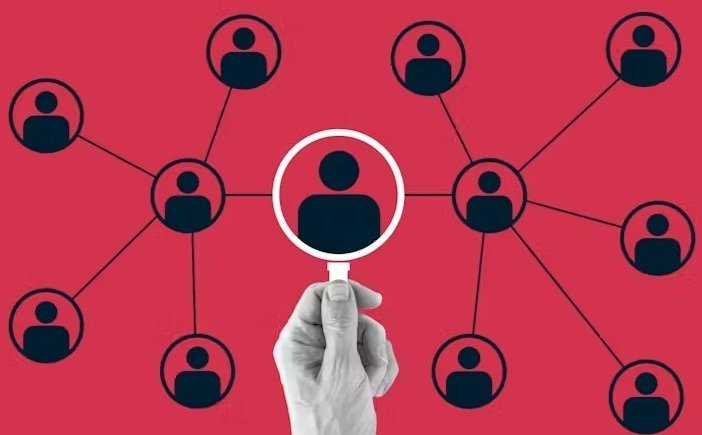Over the past few years, misinformation and distrust in the media have become hot-button issues for Americans. As many as 3 in 4 Americans overestimate how well they can spot misinformation, researchers for the Proceedings of the National Academy of Sciences found in 2021.
Yahoo News / Institute for Strategic Dialogue
Social media channels, including Tiktok, are full of videos offering health and medical advice from celebrity and everyday influencers. But a dangerous new trend centers around skin care and sunscreen – or the lack thereof.
WTNH-TV
Deepfake detection is a burgeoning market: In 2023, startups combatting technology misinformation raised $313 million — up 67% from funding in 2021.
Business Insider
Christina Veiga (shown) of the News Literacy Project sat down with CNN’s Hadas Gold and explained how to spot an AI-generated content.
CNN
Artificial intelligence is often associated with digital deception, but a team of Australian and British researchers are trying to flip the script by using AI to counter climate misinformation.
Scientific American
Artificial intelligence technology is not new, but dramatic advances in generative AI have captured the world’s attention and are transforming the information landscape. The infographic in the link below provides an overview of how this technology works and offers six news literacy takeaways to keep in mind as these tools evolve.
News Literacy Project
The Integrity Project gathered a panel of elections experts last month to discuss the finer points of the elections process as part of the apolitical non-profit’s inaugural “Integrity Matters” events series.
Read MoreThere are gaps in our understanding of how and why digital misinformation propagates. To help design effective interventions to minimize the spread of falsehoods, researchers need data and transparency from online platforms.
Nature
With the 2024 election looming in the not-so-distant future, there’s a lot of information to consider and consume. And that may mean a lot of lies that can lead to irrational beliefs.
ASU News
A new in-depth analysis shows that users who reply to misinformation about the Covid-19 vaccine on X, formerly known as Twitter, with a positive attitude, politeness, and strong evidence are more likely to encourage others to disbelieve the incorrect information.
Georgia Tech
More than 150 fake local news websites pushing Russian propaganda to U.S. audiences are connected to John Mark Dougan, an American former law enforcement officer living in Moscow, according to a research report published Wednesday by NewsGuard, a firm that monitors misinformation.
NBC News / NewsGuard
From fake images of war to celebrity hoaxes, artificial intelligence technology has spawned new forms of reality-warping misinformation online. New analysis co-authored by Google researchers shows just how quickly the problem has grown.
CBC News
Arizona Secretary of State Adrian Fontes joined fellow State Secretaries Sunday on NBC News’ “Meet the Press” with host Kristen Welker to discuss threats to democracy ahead of the 2024 election.
NBC News
Millions of us have played with artificial intelligence tools like ChatGPT, testing their ability to write essays, create art, make films, and improve internet searches. Some have even explored if they can provide friendship and companionship—perhaps a dash of romance.
The Brink/Boston University
Along with dance challenges, memes and an abundance of Taylor Swift fan theories, TikTok has become the home of another type of content: health information. But after conducting a study this year, two University of Chicago researchers are warning of misinformation making its way around the app.
Chicago Sun-Times
The continuing spread of anti-science sentiment and misinformation and disinformation about science has become a very dark matter, so to speak. So it would make sense to hear what astrophysicist, author, and science communicator Neil deGrasse Tyson has to say about it.
Forbes
Flicking through your social media feed, an image strikes you. It is outrage-inducing, confirming long-held beliefs about a group or an issue. You quickly repost it while stating your viewpoint, signaling to your family and friends whom you stand with. This is the kind of everyday, understandable response that has seen misinformation spread widely.
Scientific American
Nearly three of four Americans (72%) surveyed say skills in media literacy are important in the face of intentionally misleading or inaccurate information in the media, according to the new Media and Technology Survey out today from Boston University’s College of Communication conducted by Ipsos.
Boston University College of Communication
Author and ‘Sounds Like a Cult’ podcaster Amanda Montell discusses her new book The Age of Magical Overthinking: Notes on Modern Irrationality on Chicago's WGN News morning program, describing the psychology behind conspiratorial thinking and misinformation.
WGN News
Conspiracy theories are everywhere, and they can involve just about anything. People believe false conspiracy theories for a wide range of reasons – including the fact that there are real conspiracies.
The Conversation




















